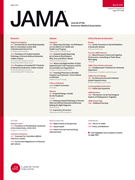 A heart researcher who fabricated trial participants has notched a second JAMA retraction. The retraction comes at the request of her co-authors, after an investigation by her former employer wasn’t able to confirm that this study was valid.
A heart researcher who fabricated trial participants has notched a second JAMA retraction. The retraction comes at the request of her co-authors, after an investigation by her former employer wasn’t able to confirm that this study was valid.
In September, we learned that Anna Ahimastos, who used to work at Baker IDI Heart and Diabetes Institute in Melbourne, Australia, had “fabricated [records] for trial participants that did not exist” in a JAMA trial for a blood pressure drug, according to principal investigator Bronwyn Kingwell. That trial was retracted, along with a sub analysis.
An investigation by the institute found problems or sufficient doubt in several more publications. This second JAMA retraction is number 5 for Ahimastos, of 8 total expected.
The paper, “Effect of perindopril on large artery stiffness and aortic root diameter in patients with Marfan syndrome: a randomized controlled trial” Continue reading JAMA retracts second paper by heart researcher








